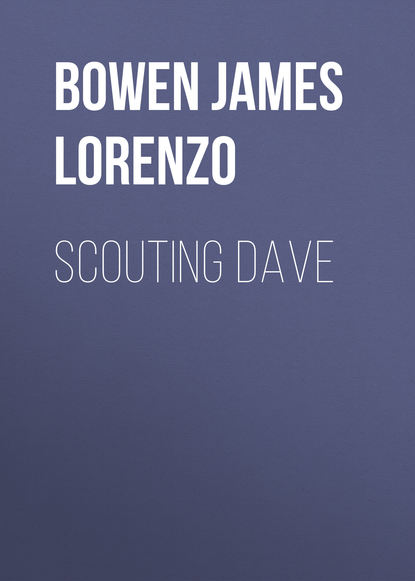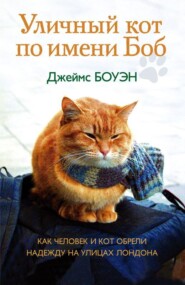По всем вопросам обращайтесь на: info@litportal.ru
(©) 2003-2025.
✖
Scouting Dave
Настройки чтения
Размер шрифта
Высота строк
Поля
“Hist!” she softly whispered.
“Someone is coming,” she added; “be silent for a moment.”
Listening to be sure that David had taken the bait, she glided from the apartment. In another instant she had communicated all she knew to the savage guard still awake. He uttered a grunt of satisfaction, and proceeded to arouse his companions, while Sally hastened back to the scout.
“David!” came gently to his expectant ears. He raised himself, and inquired if all was right.
“Yis, the Injin guard is gone,” she whispered, in a tone much louder than previously used.
“Hush, not too loud,” cautioned the scout, fearing she might betray the presence of a stranger.
“Wal, I’ll be careful,” she whispered, in a slightly-modulated key. “But whar’s yer comrades? Ye didn’t come alone?”
“That don’t sound much like Emily,” the scout thought to himself. “Maybe she’s dropped that polite way she used to have o’ speakin’. Though I did like to hear such words from her purty lips.”
“I’m alone here,” he whispered; “though Charles Markley – ”
Before David could proceed further he became aware that his presence was discovered. The four Indians had stolen cautiously from the hut, and were silently approaching, when one of their number stepped upon a round stick, which came near throwing him to the ground. Seeing their movements were discovered the savages gave a yell, and rushed forward.
Quick as thought the scout’s rifle flew to his shoulder, while its tongue of flame arrested one savage midway.
But he was not to escape this time. The Indian with the hatchet hurled it furiously, and although the blade passed harmlessly, the handle struck just above David’s ear, knocking him senseless to the earth. At the same moment the others fired their rifles, but the bullets passed harmlessly by. His fall had saved him.
Great, indeed, was their rejoicing when they found how mighty was the foe that had been conquered. Their savage exultation seemed to know no bounds. Many were anxious that he might at once be put to torture, but the brave who held command during the absence of Ashbey ordered the prisoner to be put in confinement, to await the return of his superior. As no one dared dispute his authority, the prisoner was led away toward the place where Alfred was already confined.
They were within some fifty yards of the prison, when a loud yell, quickly followed by the report of a musket, broke upon the group. The ringing crack of a rifle followed a moment after, while a more fearful yell told that some victim had fallen.
Too well the scout knew the meaning of all this. Charles had, in some manner, been discovered. The warriors of the party, leaving a force to guard the prisoner, started in the direction of the reports. Just as they reached the prison-door, a more distant rifle-shot, followed by another yell of pain, told that the fugitive was still free.
But David could see no more.
Could it be that Charles had succeeded in freeing his brother? The thought was full of pleasure, but it seemed hardly probable. He called aloud:
“Alf, my boy!”
“Here!” was the answer. “And you, my brave friend, here too?”
“Yis, my boy,” the hunter responded, in as cheerful tones as he could assume; “though it’s mighty against my will, that’s true as ye live. But I’ve bin in worse places nor this, an’ even in this very hole once afore. We’ll make our way out, no kind o’ danger about that. Charley would have let you loose afore this, only the red rascals got wind o’ what he’s at.”
David had by this time found the whereabouts of the young man, and bending closer, he whispered in his ear:
“We’re not so destitute as you may suppose. I’ve two pistols under my coat which the dogs overlooked, and they may come in good play if either of us gets a hand loose.”
The knowledge that they had weapons seemed instantly to raise the drooping spirits of Alfred.
CHAPTER XI.
WILD BILL TRIES AN EXPERIMENT
It was some hours after the capture of the scout, and the warriors had returned from the unavailing pursuit of Charles Markley. Five had fallen during the day, nearly a third of their number. Although two daring foes were in their power, one at least still wandered through the forest. Adverse fate seemed upon them, and they were moody and silent. The villagers were still astir, as the exciting events precluded the possibility of sleep, even from Indian braves. They feared some dire retribution breaking upon them, and mourning and lamentations were rife.
A solitary figure approached the village, casting anxious and suspicious glances about him. The disturbed manner of the inhabitants, who seemed scarcely to notice his presence, filled him with vague wonder and alarm. As he observed the unusual disorder, the renegade, for it was no other, gave vent to his feelings in sundry mutterings and ejaculations.
“I wonder what in the name o’ Satan has been goin’ on here to-night? Needn’t tell Bill Ashbey that all’s right and tight, not by any means. Thank my good fortin’ I’m come home, and can soon find out what all this rumpus is about.”
He sprung up to the door of his cabin, and raised the wooden latch, but it was barred upon the inside. Giving a peculiar whistle, it was opened, and the savage stood aside with a grunt of welcome for his superior to enter. The renegade strode into the room, and looked about with a searching gaze. Two other savages were within, who had started to their feet at his approach. Giving them a simple stare of recognition, he turned to the one who had admitted him.
“Wal,” he growled, “you’ve got home, I see. What luck? Is the gal safe?”
The Indian known as Dark Cloud paused a moment, then slowly replied:
“White Bird sleep there,” indicating the apartment beyond. “Pale-face no cross trail of red-man. Pale brave come after; try to steal White Bird from her chief.”
“So that’s it, is it?” He spoke carelessly, as if to inspire himself with courage. “Some fool’s come to steal away the gal! But d’ye know these pale-faces? Have you ever seen them before?”
“Pale-Face Long-Leg kill one brave,” the Indian returned, holding up one finger by way of emphasis. “Leg no long enough to run ’way! Me throw tomahawk – knock him down – ”
A movement upon the part of the renegade broke off the communication.
“So Davy Barring has got into my hands again!” hissed the renegade. “We’ll see if he’ll git away slick as he did afore. I’ll have Sall up an’ git my supper. While that’s cookin’ I’ll over and look at the birds.”
Unbarring the door, the three passed quietly in. The scout rose upon their entrance. For a few momenta those two men, so opposite in character and disposition, stood regarding each other in silence.
“Well, old Davy, I’m glad to see you again,” Ashbey exclaimed.
“I can’t say I’m glad to see ye,” the scout returned, gazing steadily in the eye of the other; “but if any person on the face o’ the earth’s got to be cussed by the sight o’ yer miserable face, why, it may as well be Davy Barring as anybody.”
He bit his lip, to check the words which would have followed, while the other ground his teeth with rage.
“That’s bold talk for a man what’s got to die to-morrow!” the scoundrel muttered. “You may forget that yer in my hands now, and ye shall die like a dog? You’ve took too many liberties with me and mine for me to forget it. The day of reckonin’ has now come, and we will bring all these things out right.”
He paused to note the effect of his words, but the scout calmly replied:
“It may be Davy Barring dies to-morrow; thar’s certain about life but death, and maybe my time has come. I do not fear death, Bill Ashbey; I kin meet it if necessary; can you say the same?”
“You’d better tell that to someone else,” returned the renegade, endeavouring to assume a careless tone. “You needn’t tell Bill Ashbey you ain’t afraid to die, for I know better.”
“You kin only judge me by yourself,” said David, in a calm voice. “If ye’re not ready to meet yer Maker, I advise you, as a friend would, if ye had any friends, to git ready. Maybe that I shall die to-morrow, or it may be not; but, I can tell you, Bill Ashbey, I shall see your body a corpse long afore my own hour comes. I know that– mind you!”
The renegade turned pale, and shivered with a mortal terror.
“So-ho!” he exclaimed, with an attempt at bravado; “you think to scare me, old chap. To try your skill, suppose I have your head cut off at once; it will save the trouble of roastin’ ye, and a host of other inconveniences.”
“If you are ready to die, I’ll not object,” was the calm reply. “It were enough for one life to rid the earth of such a cuss as you!”
Ashbey gazed upon the man for a few moments in silence, then turned to Alfred. Bending upon the young man a look of contempt, he said:
“So, young puppy-face, you came out here, eh? Wal, I don’t wonder. I s’pose ye got so scart ye run any way. But ye’ll make a good roastin’-piece, and my braves will like the fun o’ toastin’ yer lamb’s carcass!”








